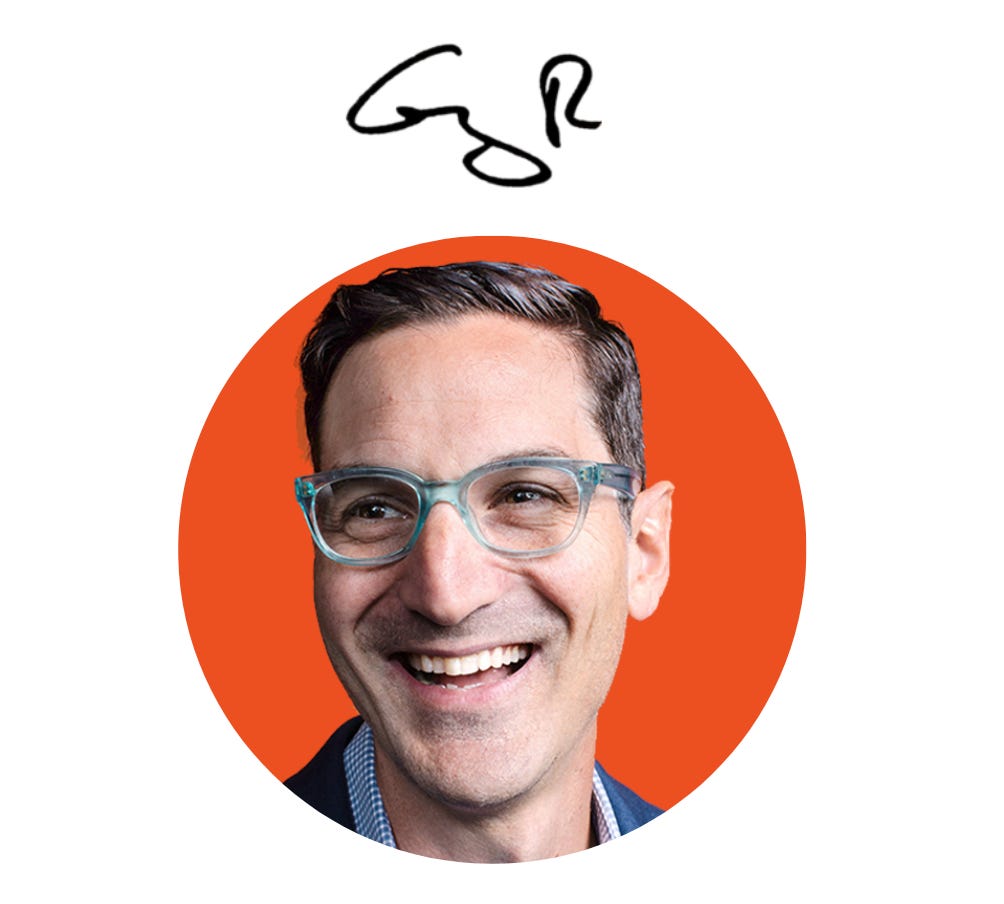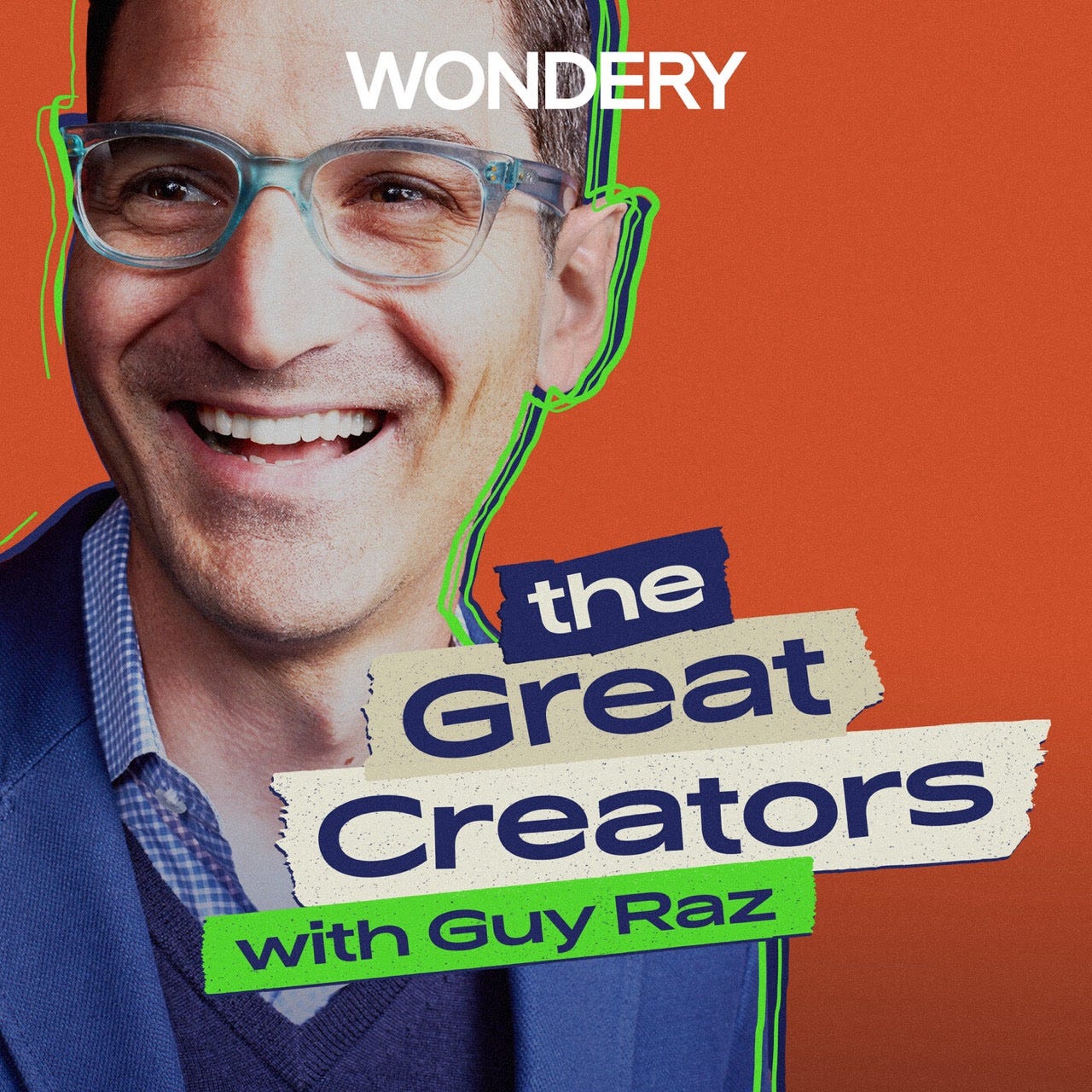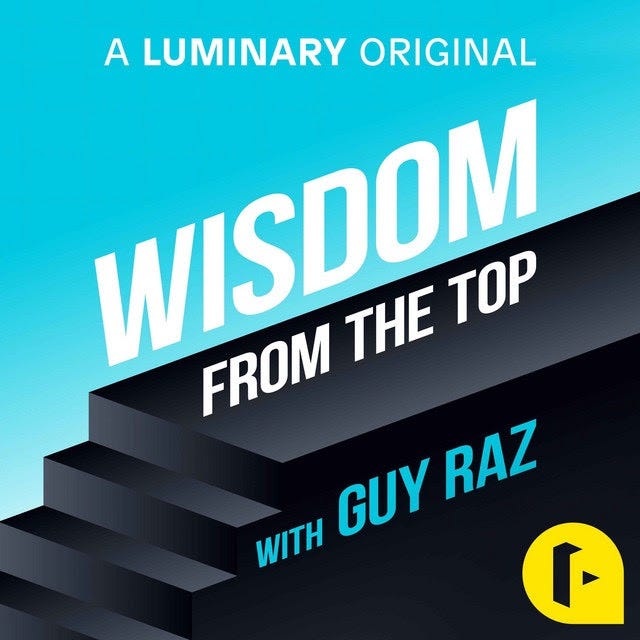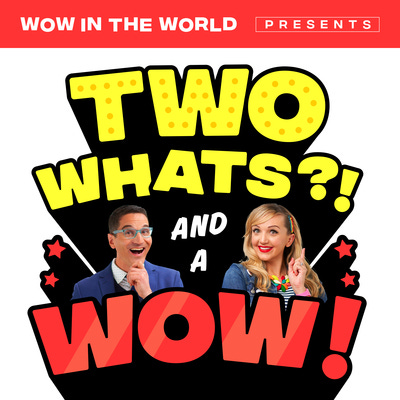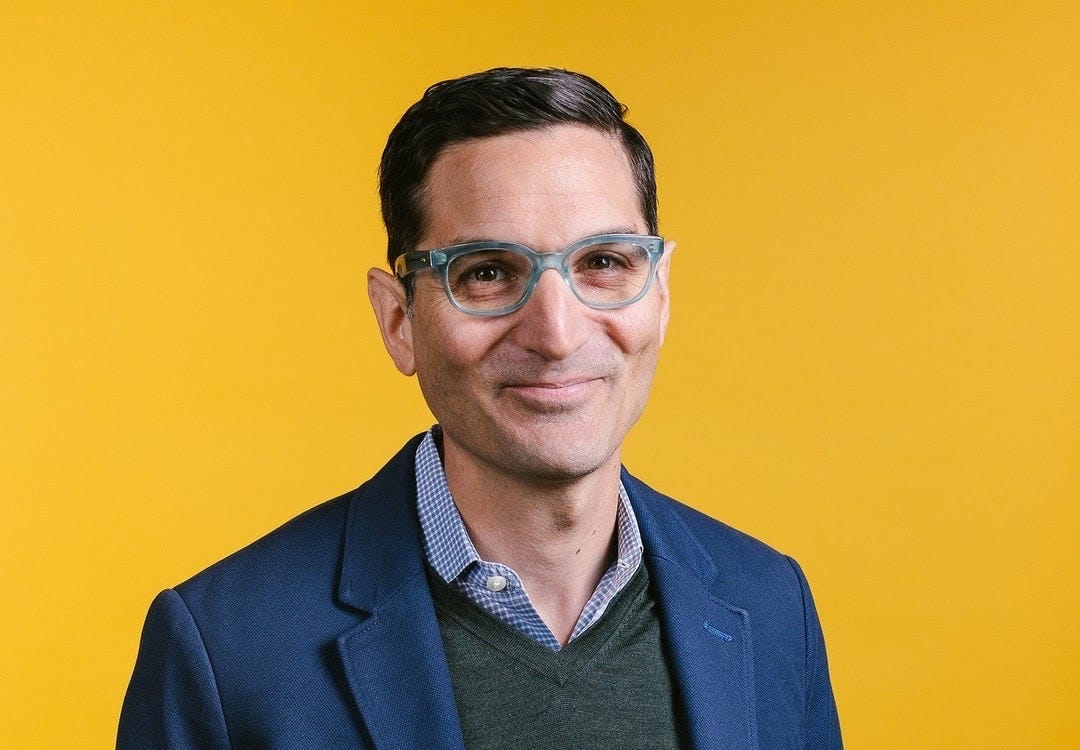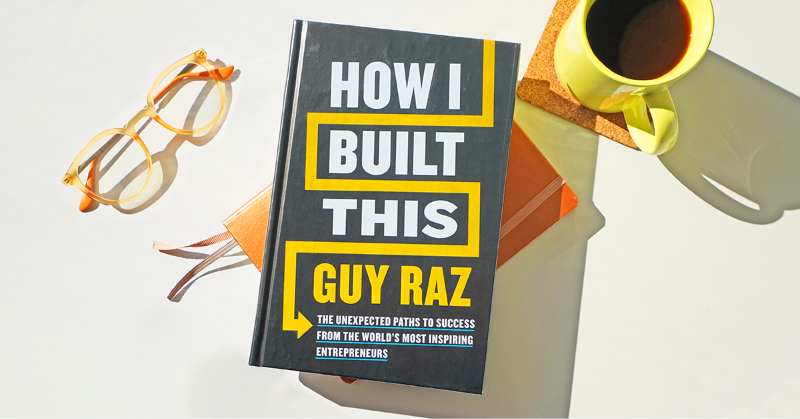One of the things that really stood out to me in this week’s episode with Rick Steves was… how little of his business was “planned.”
Rick didn’t sit down with a spreadsheet or a business model.
He wasn’t mapping out quarterly projections or growth metrics.
He was just doing something he genuinely loved (traveling) and trying to help other people experience the same joy.
No master plan or playbook. Just passion.
At one point in the episode, Rick admits he didn’t even know what a CFO was, let alone that he might need one.
And yet, over time, he built one of the most trusted travel brands in the world.
Which got me thinking…
How many people never start a business because they think they have to figure everything out in advance?
I hear it all the time:
“I have this idea, but I don’t have a clear plan.”
“I’m still researching.”
“I’m waiting until I have all the pieces in place.”
And you know what? That feeling is completely normal.
Wanting clarity before you begin makes sense. No one wants to waste time or energy.
But sometimes, the clarity only comes after you take that first step.
I’ve seen it again and again. Successful founders who didn’t have it all mapped out. They just started.
They tried something small. They learned. They adapted.
That’s what Rick did. That’s what so many entrepreneurs do.
So this week, I want to ask you:
What’s one thing you could start without having it all figured out?
Could you teach something? Try something? Test something small?
Because maybe you don’t need a perfect plan.
Maybe you just need to take the first step.
Have a great week!
—Guy
On the Podcasts This Week!
How Rick Steves Accidentally Became the Face of Travel
Rick Steves didn’t exactly plan to build a travel empire.
He just wanted to explore Europe on $5 a day (and help others do the same).
He started by simply scribbling down travel tips. Then came a scrappy self-published guidebook, sold from the trunk of his car. Soon, he was leading minibus tours, hosting a low-budget TV show, and handing out free travel advice to anyone who asked.
He wasn’t very polished. He didn’t even have a sound “strategy.”
But he was real and authentic. And that turned out to be his greatest strength.
Over time, Rick turned his no-frills philosophy into a cultural force. But it came with personal tradeoffs, unexpected pivots, and a mission that went far beyond tourism.
Tune in to hear how this small-town guy became one of the most trusted names in travel.
HIBT Advice Line: Grow Without Losing Yourself
This week on the Advice Line, I’m joined by iconic designer Norma Kamali. Norma built her fashion brand over decades without compromising her creative vision. Today, she’s helping founders figure out how to grow while staying true to the heart of their brand.
First up, Ahmed: How do I make investors care about my story?
Ahmed runs Cambridge Spectacle Company, a British eyewear brand inspired by Warby Parker. He is wondering how he can generate excitement from investors. Norma and I encouraged him to sharpen his narrative and build a stronger visual world. The clearer the brand, the easier it is to attract both customers and capital.
Next, Bob: How do I get people to think of soup as lunch?
Bob started Sunny Bowls to bring healthy, chef-made soups to the fast casual space. The food is great, but changing habits is hard. We think he should lead with nutrition and create unique packaging. If people see it, smell it, and carry it… they’ll want to try it.
Finally, Adreana: Should I raise capital or keep bootstrapping?
Adreana built Love Her Shop, an inclusive activewear brand, and grew it to $2M in revenue all on her own. Now she’s wondering what the next step should be. We advise caution: outside money can come with strings. When you’ve got something that’s working, protect it. Don’t trade control for speed.
Norma leaves us with this: You don’t have to get it all right the first time. In fact, the mistakes will teach you the most.
If you would like to be featured on an upcoming episode, call and leave a 1-minute message at 1-800-433-1298 or send a voice memo to hibt@id.wondery.com
Finneas on Trusting His Taste
Finneas simply loved making music in his bedroom.
But when his little sister needed a track for dance class, he accidentally created one of the most viral tracks of the decade.
Soon, the two of them were redefining what pop could sound like
In this episode, Finneas O'Connell opens up about the moment everything changed and what’s kept him grounded ever since.
He talks about fear, rejection, perfectionism. And how he’s learned to trust his instincts over industry noise.
This is an honest look at what creating music is really like. I hope you enjoy it!
Watch it on YouTube:
Josh Silverman: Turning Etsy Around with Focus
In 2017, Etsy was in freefall. The stock tanking, cash reserves drying up, and critics calling it doomed.
That’s when Josh Silverman stepped in.
Josh knew that saving Etsy wouldn’t take a thousand new ideas. It would take extreme discipline. He focused the team on one key metric, defined what success looked like, and just as importantly, set clear constraints.
The result was a dramatic turnaround that turned Etsy into a thriving, focused marketplace for makers and buyers around the world.
Science Podcasts for Kids!
Reality TV… Starring Penguins!
Lights, cameras… penguins! In this week’s Wow in the World, we waddle into the wild world of penguin cams. Tiny cameras strapped to real penguins that give scientists a front-row seat to life under the ice!
While Dennis mistakes the footage for a dramatic new reality show, we reveal the true purpose: to learn how penguins hunt, how far they swim, and how we can protect their chilly homes.
It’s science, storytelling, and penguin power—all packed into one WOW-worthy episode!
Let’s Explore The World Wide Web!
This week, we crawl into the world of SPIDERS!
Did you know some spiders are faster than a cheetah? Or that there's a real spider species called the “Sparklemuffin”? Only some of of these WOWs is true… can you guess which?
From silk-strong violin strings to slingshot-speed superpowers, we spin a web of facts and fiction that’ll have you thinking twice about these eight-legged wonders!
From the Archives!
Tripadvisor: Steve Kaufer
In 1998, Steve Kaufer was trying to plan a vacation to Mexico. But hours of digging through glossy brochures and scattered reviews left him more confused than confident.
That frustration sparked an idea: what if travelers could crowdsource honest advice before booking a trip?
Tripadvisor didn’t take off right away. Steve’s original plan flopped. But once he opened the platform to the public, encouraging travelers to share reviews and compare experiences, everything changed.
The site became a go-to destination for trip planning, and travel companies paid to be part of the action.
Tripadvisor grew rapidly, leading to a $210 million acquisition and a multi-billion dollar IPO in 2011. Today, it draws over 100 million visitors a month.
Patagonia: Yvon Chouinard
Yvon Chouinard wasn’t exactly trying to build a brand. He just wanted better climbing gear.
What began as a small side business for outdoor enthusiasts eventually became Patagonia, one of the most respected and influential companies in the world. But it wasn’t just the gear that made it iconic. It was Yvon’s radically different approach to business.
He rejected the idea that companies exist solely to make money, championed environmental responsibility before it was trendy, and built a brand around doing the right thing, even when it cost more.
From giving away 1% of sales to transferring ownership of the company to a trust fighting climate change, Yvon’s legacy is about redefining what a successful business can look like.
See you next time!
What do you want more or less of?
Just send a tweet to @guyraz or a message on IG to @guy.raz or LinkedIn and put #GuyRazNewsletter at the end so I can find it.


